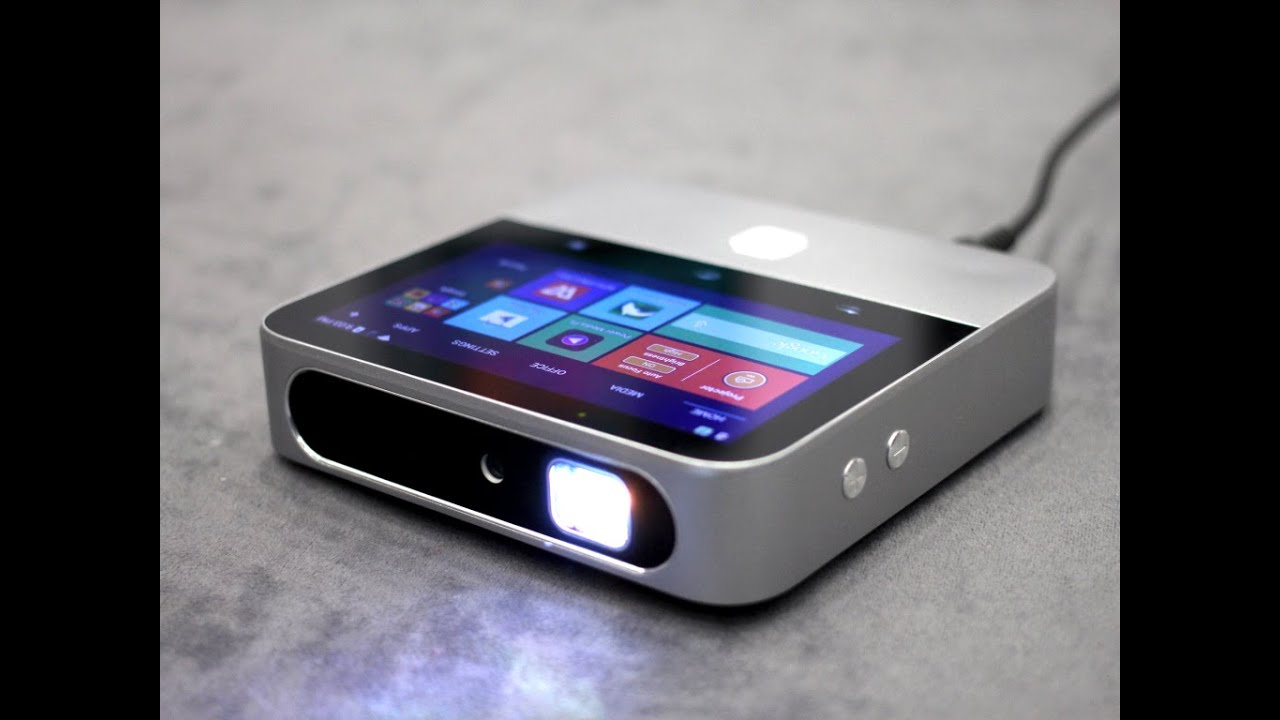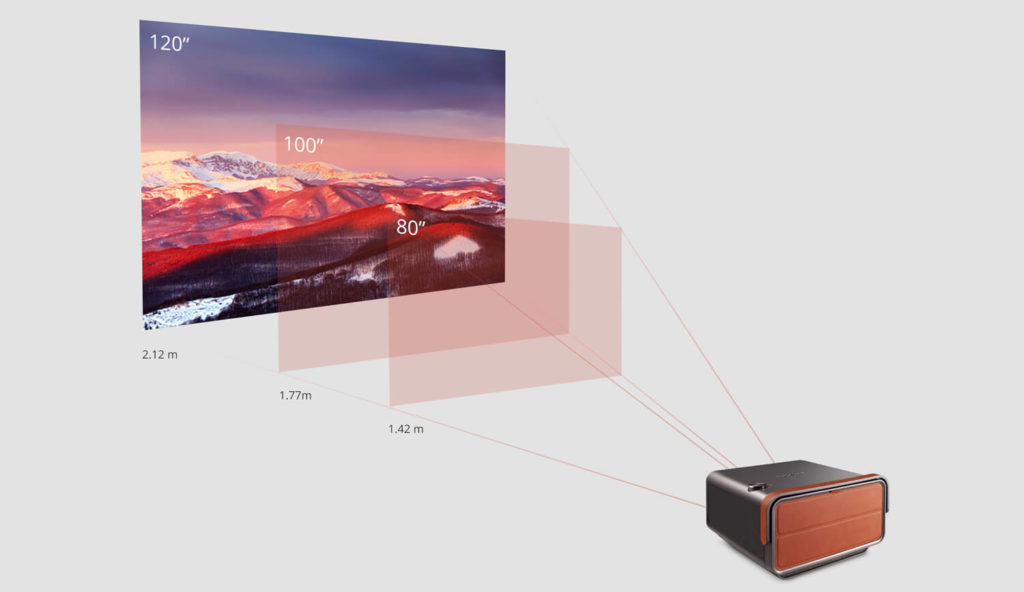Smart Projectors: An Insight Into the Future of Digital Displays
Introduction
An era of innovation and technology has given birth to devices that continually redefine our digital experience. One such latest innovation is the Smart Projector. So, what exactly is a Smart Projector, and how does it affect our digital journey? This blog post provides a comprehensive overview, comparing them with traditional projectors, exploring key features, and how they are used in different arenas. We also shed light on the market's top Smart Projectors, essentially guiding us towards the future of digital displays.

What Is a Smart Projector?
In the arena of digital displays, Smart Projectors have emerged as one of the most innovative advancements. Let's delve into what exactly a smart projector is and how it differs from its predecessors:
- Smart Technology Integration: Unlike a traditional projector, a Smart Projector incorporates smart capabilities similar to that of a Smart TV. This means it has a built-in processor, RAM, and storage space.
- App Functionality: The smart features let the projector operate apps such as Netflix, Hulu, and Amazon Video - thus removing the need for another device like a laptop or DVD player to project content.
- Connectivity: Smart Projectors come enabled with Wi-Fi and Bluetooth, allowing for wireless connections. Some even boast voice control capabilities for a more user-friendly experience.
- Abstraction from Dependency: A Smart Projector softens the dependency on secondary devices; it can function independently with integrated smart features hardwired into its structure.
This enhancement in projection technology caters to a seamless digital experience, combining traditional projection with state-of-the-art digital technologies. While the concept of a Smart Projector might seem complex, it essentially revolves around the integration of smart characteristics for a more enriched and convenient presentation of digital content.
How Do Smart Projectors Compare with Traditional Projectors?
Diving into a comparative analysis between smart projectors and their traditional counterparts helps understand what sets them apart. Here's an evaluation based on a few key parameters:
1. Device Dependency: Traditional projectors usually rely on linked devices like a PC or DVD player to access content. In contrast, smart projectors, come with embedded smart technology and can function independently without the need for secondary devices.
2. Connectivity: With inbuilt Wi-Fi and Bluetooth capacities, smart projectors outperform traditional projectors by offering wireless streaming of content directly from online platforms. The older projectors lack this feature.
3. Image Quality: Smart projectors usually provide superior image quality with many models supporting 4K content while traditional projectors offer lower resolution.
4. Built-in Apps: Smart projectors come equipped with pre-installed apps, allowing users to stream content from platforms such as Netflix, Amazon Video, etc., directly. On the other hand, traditional projectors devoid of this smart technology.
5. Pricing: As for the cost, smart projectors tend to be more expensive than traditional projectors due to their advanced features. However, it's an investment that ensures a better and more convenient viewing experience.
In conclusion, while traditional projectors have their advantages and may suffice for basic projection needs, smart projectors come with enhanced features offering a more seamless, high-quality viewing experience along with user-friendly functionality. This tech-innovation in digital displays makes smart projectors a lucrative upgrade from the conventional models.
What Are the Key Features and Capabilities of Smart Projectors?
As a fusion of cutting-edge technology and traditional projection systems, Smart Projectors feature several distinctive properties to offer a seamless and superior visual experience. Let's take an in-depth look at the vital capabilities and features that characterize Smart Projectors:
- Integrated Wi-Fi: One of the essential features of a Smart Projector is the built-in Wi-Fi, which facilitates internet connectivity. This feature eradicates the need for external cables and allows users to seamlessly browse and stream content directly.
- Pre-loaded Applications: Smart Projectors come equipped with pre-installed applications offering immediate access to numerous entertainment and streaming platforms. This eliminates the hassle of connecting additional devices to access one's favorite shows or movies.
- HDMI Ports: This feature is notable because it enables the projector to connect seamlessly with a variety of devices, including gaming consoles, laptops, or Roku sticks, amplifying the range of their utility.
- Operating System Integration: One unique capability of these devices is that they function on an operating system, facilitating the download and installation of apps much like you would on a smartphone or tablet.
- High Dynamic Range (HDR): HDR imaging's inclusion dramatically enhances the visual quality, improving the color and contrast of the projected images, making them more life-like and clearer.
- Voice Control: Several high-end models are integrated with voice assistants like Amazon Alexa or Google Assistant, making navigation and operation a hands-free, streamlined process.
- Image Resolution: An important advantage of Smart Projectors over traditional ones is their high resolution. Many models support 4K content, delivering crisp, high-quality images.
In a nutshell, Smart Projectors are designed to offer a user-friendly experience without compromising on the quality of the content that they project. These features collectively contribute to transforming how we traditionally perceive and use projectors, marking a pivotal shift in the world of digital displays.
How Is a Smart Projector Utilized in Different Arenas?
Smart Projectors have significantly altered how we present and consume visual content in different sectors. Their unique features and functionalities, such as streaming ability, independent operation, and high-resolution content display, have found practical applications across various arenas. Let's delve into the wide-range application of Smart Projectors:
1. Education: Textbooks and blackboards are gradually making way for interactive and digital learning. Here, Smart Projectors play a pivotal role. They help teachers and students connect more interactively, enabling the display of multi-dimensional content that heightens student engagement and comprehension.
2. Business Environment: In the corporate world, Smart Projectors have become indispensable tools for presentations. They aid in visually representing complex data, infographics, and professional visuals, enhancing participation and understanding during meetings and conferences.
3. Home Entertainment: Smart Projectors have revolutionized home entertainment by offering online streaming capabilities. With access to various entertainment platforms, they give viewers an immersive experience, whether it's watching a movie or playing a game, often in 4K or Full HD resolution.
4. Public Spaces: You are likely to find Smart Projectors in cafes, restaurants, or public spaces where they are utilized for displaying promotions, latest offers, or entertainment content to the customers.
There's a myriad of possibilities to explore with these dynamic devices. The usage of Smart Projectors in the above sectors shows their transformative potential in delivering premium digital, interactive experiences.
What Are the Top Smart Projectors in Today's Market?
Navigating through the world of Smart Projectors can be overwhelming, given the plethora of different models available. However, some products truly stand out, owing to their distinctive features. Let's explore a few of the most renowned Smart Projectors in today's market:
1. Optoma UHD51ALV: Distinguished by its built-in Alexa and Google Assistant compatibility, the Optoma UHD51ALV offers a hands-free projector experience. It features vivid, sharp 4K UHD resolution and powerful audio, truly promising an immersive viewing experience.
2. Epson EH-TW7100: This smart projector is a crowd-pleaser, primarily due to its captivating image quality. Incorporating 4K PRO-UHD projection technology, it guarantees a high dynamic range and rich, deep colors.
3. BenQ TK850: Designed for sports enthusiasts, the BenQ TK850 includes a dedicated sports mode that enhances audio and visuals. Its high contrast ratio and a smooth image transmission make it perfect for fast-paced matches.
4. LG CineBeam PF50KS: LG's smart projector shines for its compactness and portability. Despite its small size, it doesn't compromise on quality, offering full HD resolution and even a built-in TV tuner.
5. Anker Nebula Capsule II: This 'palm-of-your-hand' smart projector boasts of extended lamp life and Android TV, making it a favorite among users seeking portability and longevity.
To sum it up, these noteworthy Smart Projectors introduce a new standard of visual display, combining traditional projection with innovative smart technology. Each model offers a unique edge, catering to different needs and preferences.
Conclusion
Smart Projectors are not just a step up from their traditional counterparts; they are a gateway to a future where digital displays promise a more seamless and immersive experience. Through upgraded features and capabilities, they transform digital interaction in various sectors, whether it's for business presentations, education, or home entertainment. Truly, the Smart Projector is paving the way for innovation in digital displays.
Related FAQs about what is a smart projector
How have smart projectors evolved over time?
Smart projectors have advanced from being simple devices projecting content from other sources to becoming standalone devices with built-in Wi-Fi, apps, and operating systems. They have become smarter with features such as voice control, higher resolutions, and HDR capabilities.
What should one consider before buying a smart projector?
Before purchasing a smart projector, consider factors such as its resolution, connectivity options, built-in apps, and ease of use. Also, take into account its compatibility with other devices, running OS, and of course, your budget.

How will the future of smart projectors shape our digital experiences?
The future of smart projectors promises a richer digital experience with enhanced image quality, interactivity, and convenience. They are expected to incorporate even more advanced features like AR/VR capabilities, gesture control, and more, significantly transforming our digital interactions.


